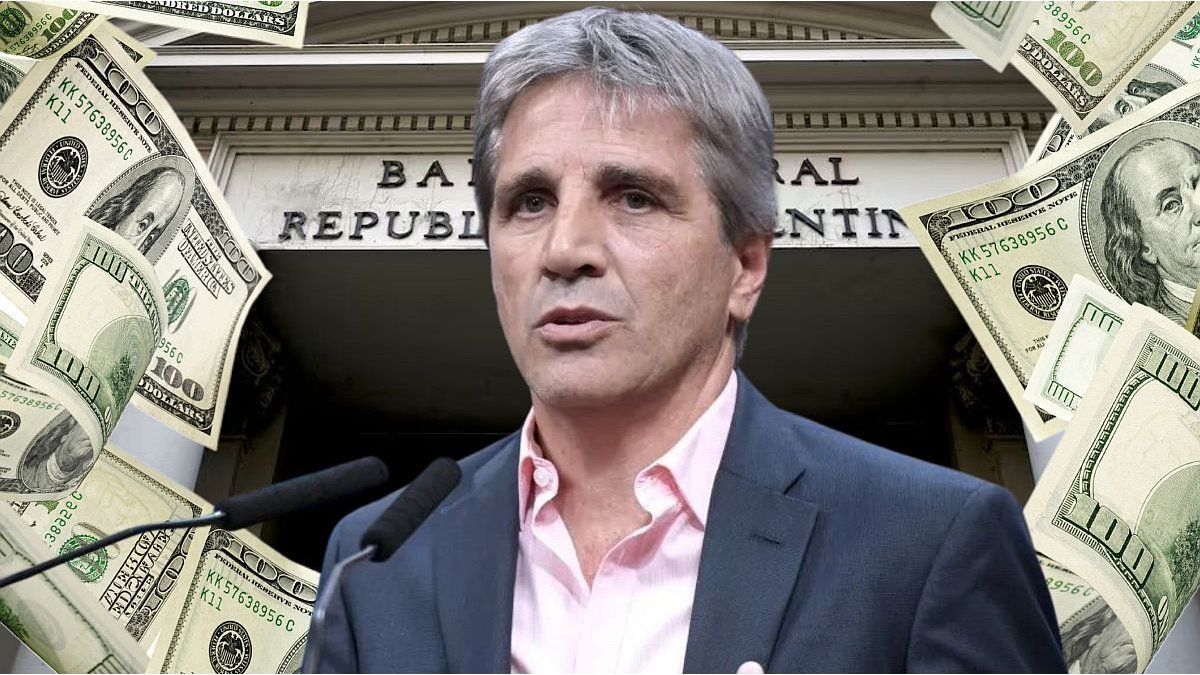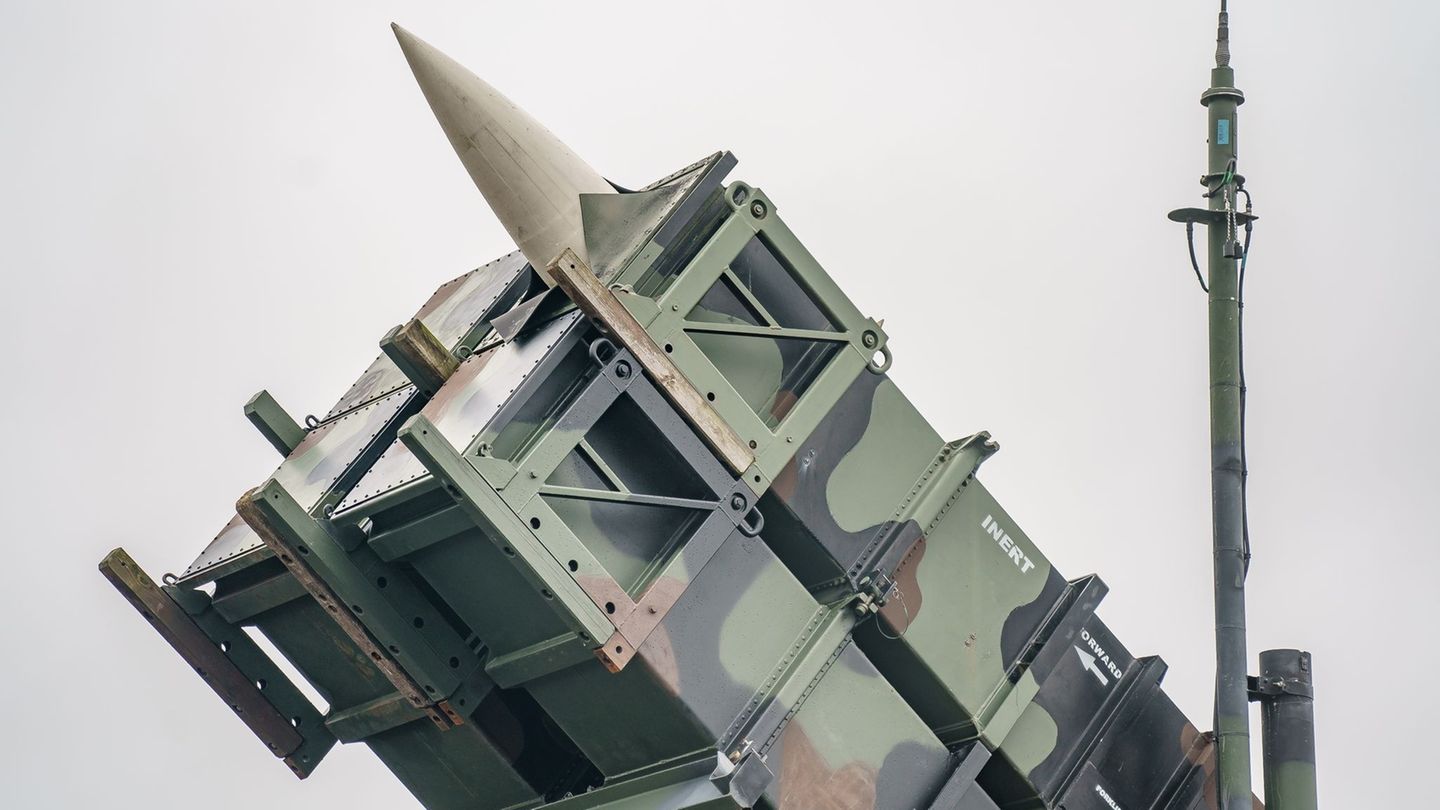Every year an idea comes up in German migration policy: Why not carry out asylum procedures in other EU countries? So…
Hendrik Wüst hoped for more. Nevertheless, North Rhine-Westphalia’s CDU Prime Minister was satisfied. He was able to “open up” the federal government to an issue, as he exulted on Tuesday morning. This topic is not easy, explained Wüst, and requires “a bit of mental effort.”
In fact, this “topic” caused the federal-state meeting to stumble, severely disrupted operations and delayed them for hours. In the short term, the federal states led by the Union and the Greens incorporated the processing of asylum procedures outside of Europe into the already difficult negotiations on migration policy. The decision was only made on Tuesday morning. The federal government should now check whether the project can even be implemented. There are certainly doubts about that, but more on that in a moment.
Wüst believes that outsourced asylum procedures could “immediately” end the deaths in the Mediterranean and ensure “humanity and order.” At its core, the idea envisages establishing migration centers in safe third countries outside the EU. Decisions on asylum applications will then be made there – in compliance with the Geneva Refugee Convention and the European Convention on Human Rights.
Very close
Are you interested in politics? – and read the most important information of the week, selected for you by our Berlin politics experts!
The premise is that those seeking protection would not even make the often fatal journey across the Mediterranean: they would have to expect to end up having to wait for their asylum procedure in another country. This would also reduce irregular immigration to Germany.
The former SPD Interior Minister Otto Schily had already dreamed of reception camps in North Africa, that was in 2004. “Otto the Hard” also wanted to rescue refugees from distress at sea, but at the same time deter other potential refugees, he said at the time. And: “I believe that the North African countries must also have an interest in ensuring that things do not develop the way they do.” His later successors Thomas de Maizière (CDU) and Horst Seehofer (CSU) also dreamed of outsourcing asylum procedures.
Why has her dream not come true to date? Many practical and legal questions arise in cold theory.
The Rwanda Plan
Two variants would be conceivable for asylum procedures outside the EU. The first: Migrants could apply for asylum in Germany in transit states – i.e. on the way to Europe. The second: Those seeking protection are sent back from Germany to countries outside Europe, where they would then go through their asylum procedure. The latter variant comes closest to the current proposals – and is what Great Britain is aiming for.
The British government has been trying for two years to send asylum seekers to Rwanda, East Africa, to process their claims. The plan: A selected number of those immigrants who arrive on the island either by boat or by other means – now defined as “illegal” by Prime Minister Rishi Sunak’s government – are to be transported to the African country by plane immediately after arriving in the kingdom , with which the British concluded a corresponding agreement. In this way, on the one hand, the backlog in the processing of asylum applications was to be reduced, and on the other hand, Sunak’s government hoped that the Rwanda threat would have a deterrent effect on those refugees who were planning the risky crossing of the English Channel in smugglers’ boats on the French coast. There are currently more than 175,000 refugees waiting in the UK for their asylum claims to be processed, some for up to two years.
The desired deportation solution is not only difficult to implement practically and legally, but is also disproportionately expensive. The British government has already paid 161 million euros to Rwanda to implement its deportation plan, although not a single refugee from Great Britain has yet reached the country. The government itself determined that deportation to the African country was 73,000 euros more expensive per person than processing applications in Great Britain. Nevertheless, the British built 250,000 accommodations for refugees in Rwanda. Interior Minister Suella Braverman visited them in March of this year and described them as “beautiful “.
Alone: The rooms remain unoccupied so far. On June 15, 2022, the first plane destined for Rwanda was on the runway of a military airport in Wiltshire, southern England, with just seven refugees in it, when the European Court of Human Rights in Strasbourg ordered the deportation stop at the last minute. The deportations violated the human rights of those affected, the verdict said. The government appealed – and lost. In April, Britain’s Supreme Court ruled that Rwanda was not a safe third country for refugees. Since then, Sunak’s government has been trying to get around the legal hurdle, and even withdrawing from the Human Rights Convention is currently being considered.
“Very skeptical about how this can work”
The proposal now put forward by Wüst and Union is based on an idea from migration researcher Gerald Knaus. It’s about “discouragement,” he recently told the “Süddeutsche Zeitung”, i.e. the message: “Anyone who gets on a life-threatening fishing boat to go from Senegal to the Canary Islands will then be quickly returned to a safe third country. “
Regarding the legal objections, the expert said that the asylum procedures could be carried out in a partner state such as Rwanda under the supervision of the UN High Commissioner for Refugees (UNHCR). And of course there must be attractive offers for the partner state to take on these burdens.
In addition to the (European) legal concerns, finding a partner in particular is likely to prove difficult. Even Winfried Kretschmann, the Green Prime Minister of Baden-Württemberg, is “very skeptical about how this can succeed” despite his support for the third-country solution.
After the MPK decided to examine the Rwanda model, so to speak, he engaged in expectation management. In such a difficult situation, ideas should not be ruled out from the outset, said Kretschmann. However, this point should not be overestimated. “It has a lot of prerequisites, including when it comes to negotiations,” he said. A lot needs to be clarified. Is it about people who are not yet in Europe? Or even those who would already be? In addition, a country must be found in which the procedures can be carried out.
This is now being checked and the work order is in place. It is a small respectable success for the Union: the examination of the third-country solution is already stipulated in the traffic light coalition agreement, but only “in exceptional cases”. Now it will be discussed whether the larger wheel can also be turned.
Italy is already further ahead than Wüst and Scholz and wants to build two reception centers on Albanian soil for migrants who have come across the Mediterranean. Their asylum applications will be examined there. With the deal, Prime Minister Georgia Melone creates facts – which are not without controversy. The EU Commission has demanded “detailed information” about the agreement from the government in Rome. The details would have to be checked, it said.
Source: Stern
I have been working in the news industry for over 6 years, first as a reporter and now as an editor. I have covered politics extensively, and my work has appeared in major newspapers and online news outlets around the world. In addition to my writing, I also contribute regularly to 24 Hours World.




